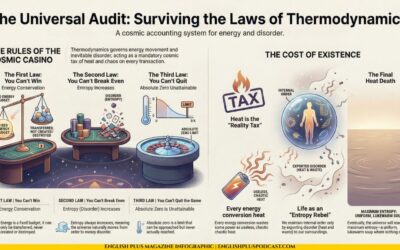- Dreams: A Basic Understanding
- Theories of Why We Dream
- What Does Science Say About Dreams?
- The Unending Fascination with Dreams
- Keywords
- Key Takeaways
- FAQs
- Myth Buster
- Myth 1: Dreams are always prophetic or have hidden meanings.
- Myth 2: Dreaming only occurs during REM sleep.
- Myth 3: All dreams are pleasant or meaningful.
- Myth 4: Dreams are entirely random and meaningless.
- Myth 5: Lucid dreaming is dangerous or can lead to sleep problems.
- Myth 6: Dreams occur only during deep sleep.
- Myth 7: Dreaming is a waste of time.
- Myth 8: Everyone dreams every night.
- Myth 9: Dreaming stops when we wake up during REM sleep.
- Myth 10: Dreams are only about personal experiences.
- Checkpoint
Dreams have captivated the human imagination since time immemorial. They have been the fodder for artists, philosophers, and scientists alike, offering an elusive yet fascinating glimpse into our subconscious minds. But one question that continues to baffle us is: why do we dream? This article delves into the world of dreams, exploring theories and scientific research to unravel this enduring enigma.
Dreams: A Basic Understanding
Dreams are sequences of thoughts, images, and sensations occurring in a person’s mind during sleep. They often involve narratives that are either simple and straightforward, or complex and surreal. They can be pleasant, terrifying, bizarre, or apparently mundane. But why we dream remains one of the most elusive questions in neuroscience.
Theories of Why We Dream
Despite the lack of a definitive answer, several theories have emerged over the years to explain why we dream. These theories often fall into two categories: psychological theories, which emphasize the mental and emotional aspects of dreaming, and physiological theories, which focus on the biological processes involved.
- Freud’s Theory of Dreams: Sigmund Freud, the father of psychoanalysis, suggested that dreams are the expression of repressed desires, especially sexual ones. According to Freud, dreams are the “royal road to the unconscious” – a pathway to understanding the inner workings of our mind.
- Cognitive Theories: These theories propose that dreaming is a form of cognition that is related to processes like memory consolidation and problem-solving. Some researchers believe dreams might be a way for the brain to sort through and organize information from the day.
- Activation-Synthesis Hypothesis: Proposed by psychologists J. Allan Hobson and Robert McCarley, this hypothesis suggests that dreams are the brain’s attempt to make sense of random neural signals that occur during sleep. The “story” of a dream is essentially a patchwork quilt sewn together by the mind.
- Threat Simulation Theory: According to this theory proposed by Antti Revonsuo, a cognitive neuroscientist, dreams serve an evolutionary purpose. They act as a kind of virtual reality simulator where our ancestors could practice dealing with threats and dangers, helping to enhance survival and reproductive success.
What Does Science Say About Dreams?
Scientifically, dreams mostly occur during the REM (Rapid Eye Movement) stage of sleep, a phase characterized by high brain activity. However, dreams can also occur during non-REM sleep stages, though these dreams are often less vivid and less memorable.
Research in neurobiology and neuroimaging has provided some insights into the dreaming brain. We know that certain brain regions and neurotransmitters play critical roles in dreaming. For instance, the amygdala, which processes emotions, is often highly active during dreams. This could explain why dreams are often emotional.
Despite the advancements in neuroscience, a definitive answer to why we dream remains elusive. One thing is clear: dreams are a complex phenomenon involving numerous processes in the brain.
The Unending Fascination with Dreams
Dreams continue to enthral us with their mystique and elusiveness. From Freud’s psychoanalytic theories to the latest in neurobiology, the question of why we dream continues to fuel research and debate. Perhaps dreams are our mind’s way of sorting through memories, or perhaps they’re merely random firings of the brain during sleep. Or, they might hold deeper meanings, providing a window into our subconscious desires and fears. As we delve deeper into the world of dreams, we might get closer to understanding this captivating mystery of the human mind.
Keywords
- Dreams: Sequences of thoughts, images, and sensations that occur during sleep.
- Subconscious mind: The part of the mind that influences thoughts, feelings, and behaviors without conscious awareness.
- Psychoanalysis: A psychological approach developed by Sigmund Freud that focuses on the unconscious mind and its influence on behavior.
- Cognitive theories: Theories proposing that dreaming is related to cognitive processes such as memory consolidation and problem-solving.
- Activation-Synthesis Hypothesis: A theory suggesting that dreams are the brain’s attempt to make sense of random neural signals during sleep.
- REM sleep: Rapid Eye Movement sleep, a stage of sleep characterized by high brain activity and vivid dreaming.
- Neurobiology: The study of the nervous system and how it relates to behavior and cognition.
- Neuroimaging: The use of imaging techniques to visualize and study the brain’s structure and function.
- Amygdala: A brain region involved in processing emotions and often highly active during dreams.
- Unconscious desires: Desires or wishes that exist outside of conscious awareness, according to Freudian theory.
Key Takeaways
- Dreams are sequences of thoughts, images, and sensations that occur during sleep.
- Theories on why we dream include Freud’s theory of repressed desires, cognitive theories, the activation-synthesis hypothesis, and the threat simulation theory.
- Dreams are most common during REM sleep but can also occur during non-REM sleep stages.
- Research in neurobiology and neuroimaging has provided insights into the brain processes involved in dreaming.
- Dreams are a complex phenomenon involving various brain regions and neurotransmitters.
- The definitive answer to why we dream remains elusive, and further research is needed.
- Dreams continue to fascinate and fuel research and debate, from psychoanalytic theories to neurobiology.
FAQs
Do dreams have any meaning?
The meaning of dreams is a topic of debate. While some theories suggest that dreams reflect our subconscious desires and fears, others propose that they are random brain activity without inherent meaning. The interpretation of dreams is subjective, and their significance may vary from person to person.
Can dreams predict the future?
There is no scientific evidence to support the claim that dreams can predict the future. While dreams can sometimes feel uncannily prophetic, these instances are likely coincidences or the result of subconscious processing of past experiences.
Do all dreams have symbolism?
Not all dreams have symbolic meaning. Some dreams may be a straightforward reflection of recent experiences or thoughts, while others may involve symbolic elements. The interpretation of dream symbols can be highly subjective and may vary depending on cultural and personal associations.
Can dreams be controlled?
Some individuals can learn to control their dreams through techniques like lucid dreaming, where they become aware that they are dreaming and can actively influence the dream’s content. However, lucid dreaming requires practice and may not be achievable for everyone.
Are nightmares harmful to mental health?
Nightmares, which are distressing and vivid dreams, can be unsettling but are generally not harmful to mental health. However, recurring nightmares or those causing severe distress might be indicative of underlying psychological issues and may warrant professional attention.
Are all dreams in color?
Not all dreams are in color. While some people report dreaming in vivid colors, others may experience dreams in black and white or with varying levels of color intensity. The experience of dream color is subjective and can vary between individuals.
Do animals dream?
Research suggests that animals, especially mammals and birds, also experience dreaming during sleep. Studies on animals have shown patterns of brain activity similar to humans during REM sleep, indicating the possibility of dreaming.
Can external factors influence dreams?
External factors such as noise, temperature, and emotional state can influence the content and intensity of dreams. Stress, medications, and sleep disorders may also impact the occurrence and nature of dreams.
Are recurring dreams significant?
Recurring dreams can hold personal significance, often indicating unresolved emotions or recurring themes in an individual’s life. Exploring the underlying emotions and meanings associated with recurring dreams can provide insights into one’s subconscious mind.
Can we forget our dreams?
Yes, dreams are often forgotten shortly after waking up due to the brain’s normal processes of memory consolidation. Factors like sleep inertia, lack of attention, and not reflecting on the dream upon waking can contribute to forgetting dreams.
Myth Buster
Myth 1: Dreams are always prophetic or have hidden meanings.
Reality: While dreams can sometimes appear prophetic or have symbolic elements, the majority of dreams are a reflection of daily experiences, thoughts, and emotions. Assigning specific meanings to dreams is subjective and varies from person to person.
Myth 2: Dreaming only occurs during REM sleep.
Reality: Although dreams are most commonly associated with REM sleep, they can also occur during non-REM sleep stages, albeit with less frequency and vividness. Dreams during non-REM sleep are often less memorable.
Myth 3: All dreams are pleasant or meaningful.
Reality: Dreams can be pleasant, neutral, or even distressing. They can encompass a wide range of emotions and experiences, mirroring the complexity of our waking lives. Not all dreams have inherent meaning or significance.
Myth 4: Dreams are entirely random and meaningless.
Reality: While some dreams may seem random, research suggests that dreams are influenced by our experiences, emotions, and subconscious processes. They can provide insights into our thoughts, fears, and desires, even if the specific meaning is not always clear.
Myth 5: Lucid dreaming is dangerous or can lead to sleep problems.
Reality: Lucid dreaming is generally considered safe and can be a positive experience for many individuals. It can offer opportunities for self-exploration, creativity, and overcoming nightmares. However, it may require practice and should be approached with proper knowledge and techniques.
Myth 6: Dreams occur only during deep sleep.
Reality: Dreams primarily occur during REM sleep, which is a lighter sleep stage characterized by high brain activity. However, dreams can also occur during other sleep stages, including non-REM sleep.
Myth 7: Dreaming is a waste of time.
Reality: Dreams play a crucial role in the sleep cycle and brain functioning. They contribute to memory consolidation, emotional processing, and creativity. While their exact purpose is not fully understood, they are an essential part of our sleep and cognitive processes.
Myth 8: Everyone dreams every night.
Reality: While most people do dream, not everyone remembers their dreams. Factors such as sleep quality, individual differences, and waking abruptly can affect dream recall. Some individuals may recall dreams frequently, while others may rarely remember them.
Myth 9: Dreaming stops when we wake up during REM sleep.
Reality: Dreaming can continue even if we wake up briefly during REM sleep. However, the likelihood of recalling the dream decreases if there is a significant interruption in the sleep cycle.
Myth 10: Dreams are only about personal experiences.
Reality: Dreams can incorporate personal experiences, but they can also include fictional scenarios, imaginative elements, and archetypal symbols. Dreams may draw inspiration from various sources, including memories, emotions, and cultural influences.
Checkpoint
Which theorist suggested that dreams are the expression of repressed desires?
a) Carl Jung
b) Sigmund Freud
c) Alfred Adler
d) B.F. Skinner
A
The activation-synthesis hypothesis proposes that dreams are the brain’s attempt to:
a) Consolidate memories
b) Solve complex problems
c) Make sense of random neural signals
d) Practice threat response
C
Which sleep stage is associated with the most vivid dreaming?
a) Stage 1
b) Stage 2
c) Stage 3
d) REM sleep
D
True or False: All dreams have inherent symbolic meanings.
False
Lucid dreaming is characterized by:
a) Unconscious dreaming
b) Controlling and being aware of the dream
c) Frequent nightmares
d) Dreaming only in black and white
B










0 Comments